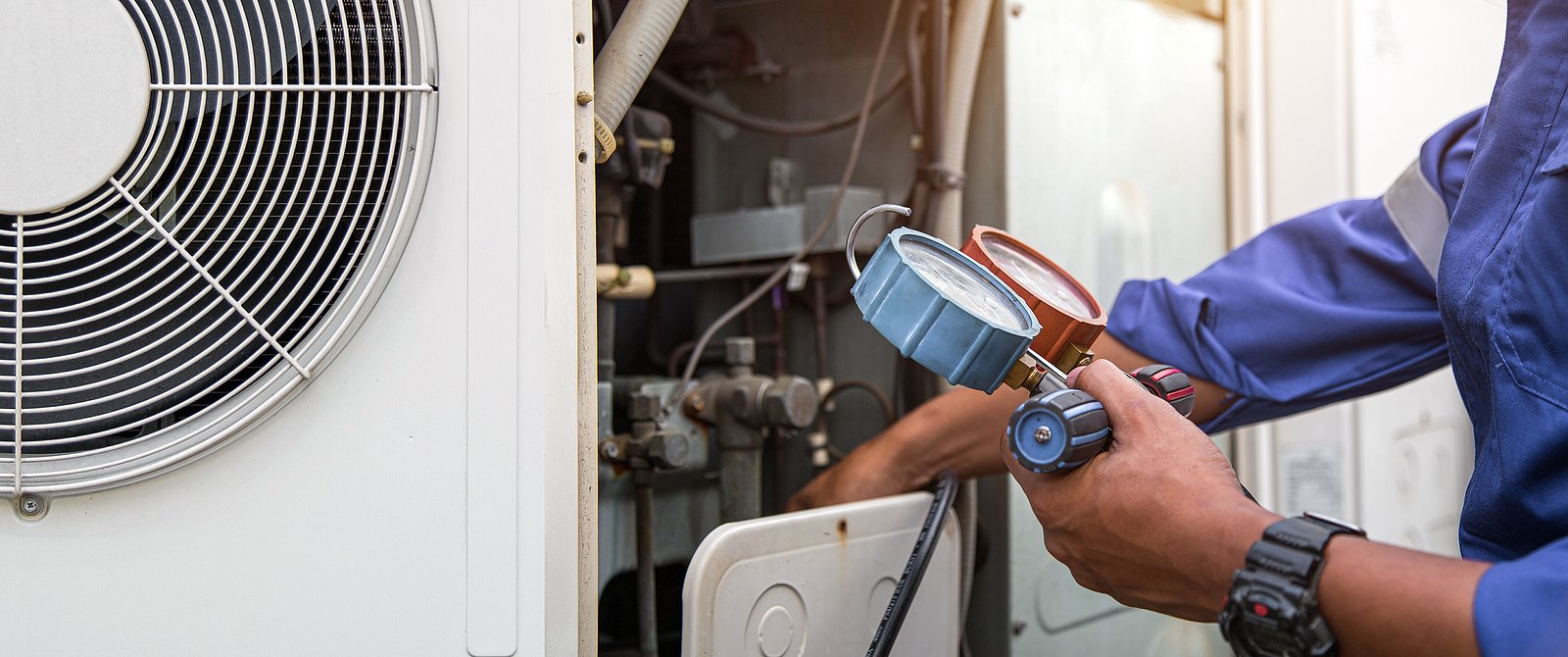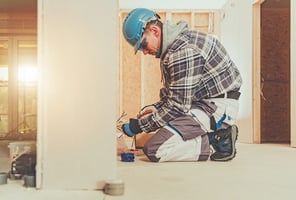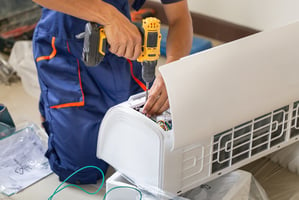Of course you know that your home and office are fundamentally different types of spaces, but are...
HVAC Systems: How Electrical Power Increases the Capacity for Comfort
 In the modern home, HVAC (heating, ventilation, and air conditioning) systems play a crucial role in maintaining a comfortable and healthy indoor environment. While the components of an HVAC system may seem complex, the underlying electrical principles are relatively straightforward. Understanding the types of circuits, basic wiring, and electrical capacity requirements for HVACs is essential for ensuring the safe and efficient operation of your home's heating and cooling systems.
In the modern home, HVAC (heating, ventilation, and air conditioning) systems play a crucial role in maintaining a comfortable and healthy indoor environment. While the components of an HVAC system may seem complex, the underlying electrical principles are relatively straightforward. Understanding the types of circuits, basic wiring, and electrical capacity requirements for HVACs is essential for ensuring the safe and efficient operation of your home's heating and cooling systems.
Types of Circuits in HVAC Systems
HVAC systems utilize two primary types of electrical circuits: series circuits and parallel circuits.
- Series Circuits: In a series circuit, the electrical current flows through each component in succession. If any component fails or is disconnected, the entire circuit breaks, causing all parts to lose power.
- Parallel Circuits: In a parallel circuit, the electrical current divides and flows through each component independently. If one component fails, the other components continue to operate. This configuration provides redundancy and ensures that a single component failure doesn't disrupt the entire system.
Basic Wiring for HVAC Systems
HVAC systems typically employ copper wires of varying thicknesses to carry electrical power from the main electrical panel to the various components. The current carrying capacity required for each component determines the wire size.
- Conductors: HVAC systems use three types of electrical conductors: hot wires, neutral wires, and ground wires. Hot wires carry the live electrical current, while neutral wires provide a path for the current to return to the source. Ground wires serve as a safety measure, protecting against electrical shocks and equipment damage.
- Voltage Requirements: HVAC systems generally operate on either 120 volts or 240 volts. Smaller components such as thermostats and control panels typically use 120 volts, while larger components such as compressors and condenser fan motors require 240 volts.
Electrical Capacity Requirements for HVAC Systems
The electrical capacity required for an HVAC system depends on the size and type of the system. A larger electrical system with more components will generally require more electrical power than a smaller system.
- Amperage: The amperage rating of an HVAC system indicates the maximum amount of electrical current it can draw. This value is crucial for ensuring the electrical circuit can handle the system's power demands without overloading.
- Circuit Breakers: Circuit breakers are protective devices that automatically shut off the electrical current to a circuit if it exceeds a predetermined limit. This helps prevent electrical hazards such as overheating and fire.
How a Basic Residential HVAC System Works
A basic residential HVAC system consists of several key components that work together to regulate the temperature and humidity within your home.
- Thermostat: The thermostat acts as the control center of the HVAC system, sensing the indoor temperature and sending signals to the system to maintain the desired temperature setting.
- Compressor: The compressor is the heart of the cooling system, pressurizing refrigerant gas into a liquid state.
- Condenser: The condenser transfers heat from the refrigerant gas to the outdoor air, causing the refrigerant to condense back into a liquid.
- Evaporator Coil: The evaporator coil absorbs heat from the indoor air, causing the refrigerant to evaporate into a gas.
- Blower Fan: The blower fan circulates the indoor air across the evaporator coil, allowing it to absorb heat and cool the indoor environment.
Wilcox Electric: Your Partner in Electrical Safety
While Wilcox Electric doesn't sell or install HVAC systems, we recognize the importance of a properly functioning electrical system to support these essential home comfort systems. If you're considering installing a new HVAC system or have concerns about your current electrical system's ability to handle the load, our team of experienced electricians can provide expert guidance and ensure your home's electrical system is up to the task.
Contact Wilcox Electric to schedule a consultation and discuss your HVAC electrical needs. We're committed to providing our customers with the highest quality electrical services, ensuring your home is safe, comfortable, and energy-efficient.




